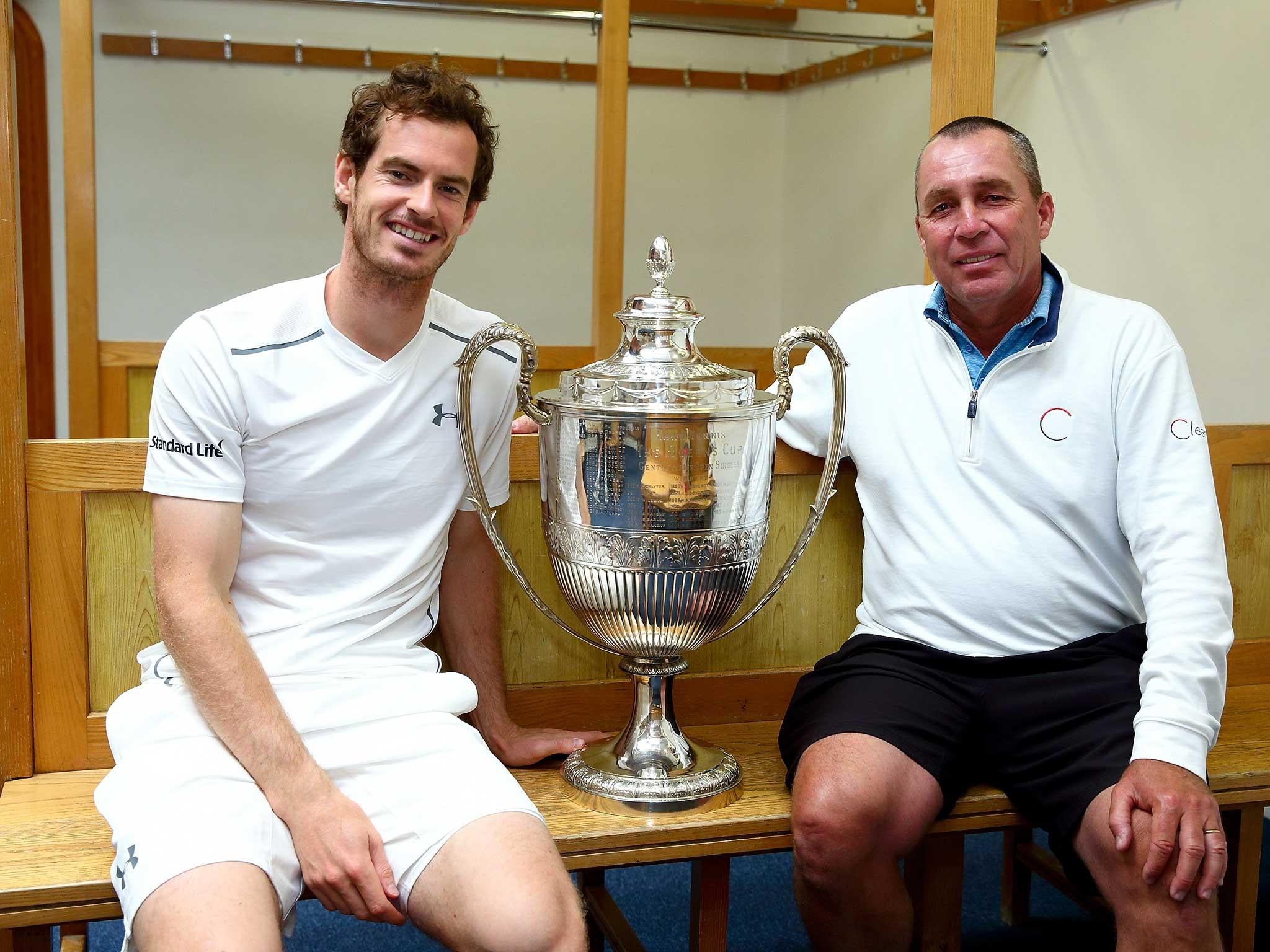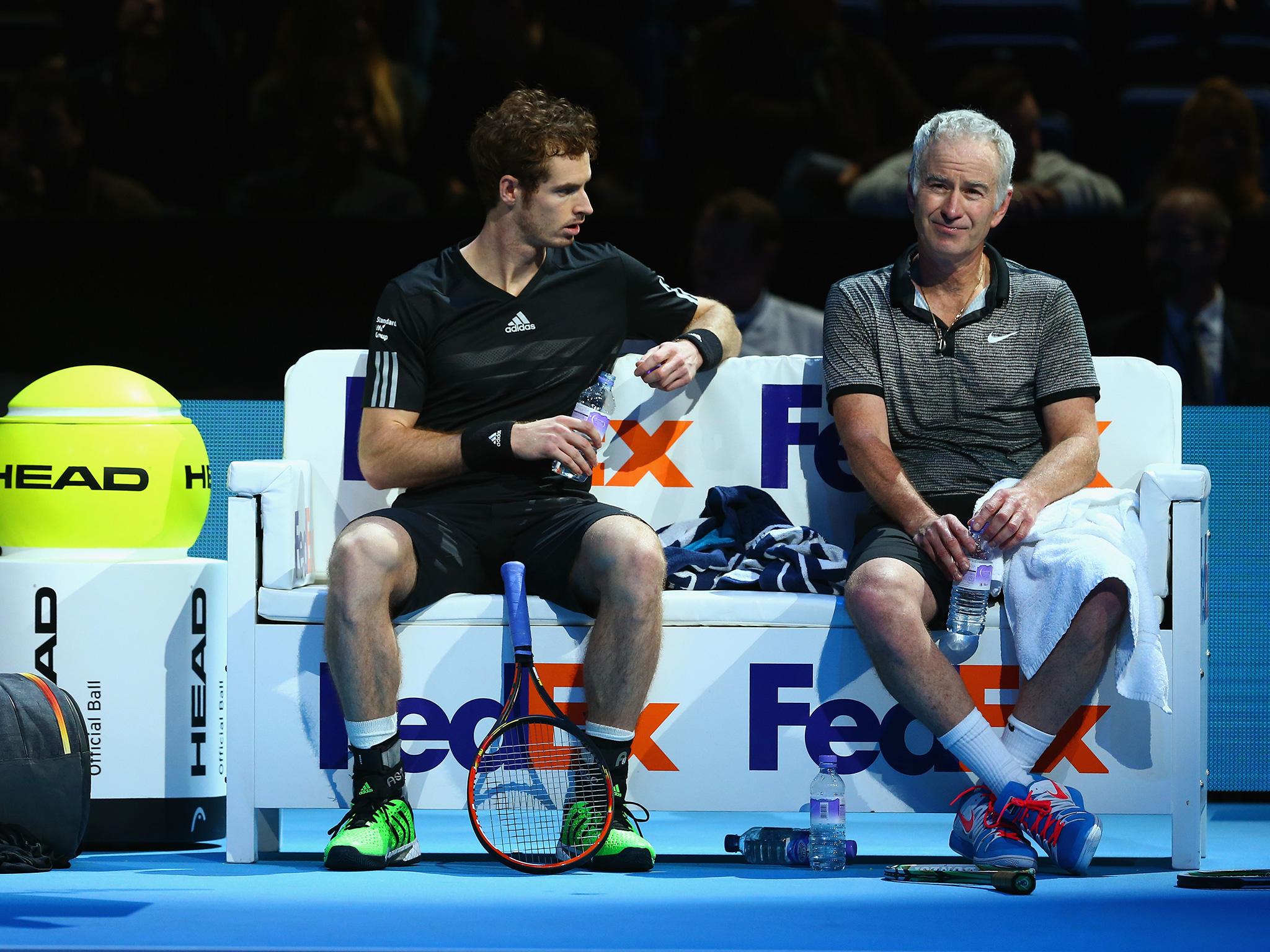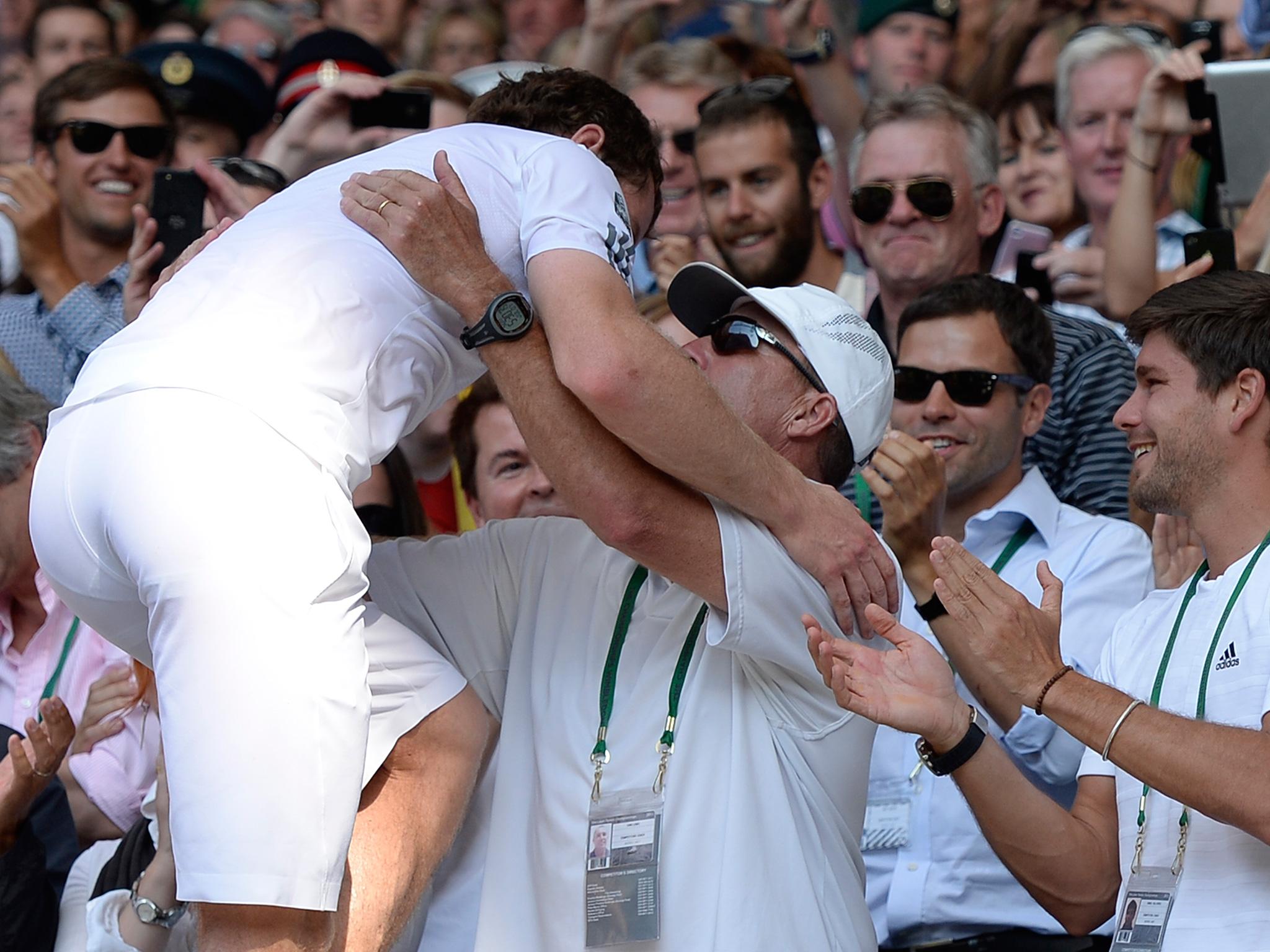Wimbledon 2016: Ivan Lendl pledges not to change Andy Murray's technique as Brit aims for second homecoming triumph
If Murray had not called earlier Lendl said he would have been playing golf this summer

Your support helps us to tell the story
From reproductive rights to climate change to Big Tech, The Independent is on the ground when the story is developing. Whether it's investigating the financials of Elon Musk's pro-Trump PAC or producing our latest documentary, 'The A Word', which shines a light on the American women fighting for reproductive rights, we know how important it is to parse out the facts from the messaging.
At such a critical moment in US history, we need reporters on the ground. Your donation allows us to keep sending journalists to speak to both sides of the story.
The Independent is trusted by Americans across the entire political spectrum. And unlike many other quality news outlets, we choose not to lock Americans out of our reporting and analysis with paywalls. We believe quality journalism should be available to everyone, paid for by those who can afford it.
Your support makes all the difference.Whatever else Ivan Lendl achieves in his second spell working with Andy Murray, he will not be attempting to change the Scot’s serving action, remodel his forehand or teach him how to hit better volleys.
“I don’t do any technique, zero,” Lendl says. “I don’t believe in that when you’re 27 or 29. What you have is what you are going to have. You can groove certain things, but changing technique is not where I’m going to go.”
Two years after Lendl and Murray parted company, the Scot having won two Grand Slam titles in their first spell together, the pair got back in harness earlier this month. They could hardly have wished for a better start as Murray won the Aegon Championships at Queen’s Club in the first tournament following their reunion.
While coaching Murray Lendl will continue his work helping some top American juniors, though he said that he did not attempt to teach them technique either.
“Even with the juniors I ask for two coaches,” Lendl said. “I requested one specifically to be part of our group and then asked for someone who’s good at it - because I suck at it. I can see there is something wrong with your forehand and see what it is, but I have no idea how to fix that.”
Had he not helped to rebuild Murray’s serve last time around? “I wasn’t part of that, so I am pleading the fifth,” Lendl said. “It’s more about grooving the things you need to use and making sure they are ticking.”
Lendl agreed, nevertheless, that players were constantly improving and that it was vital to keep up with your rivals. “There is no doubt about that,” he said. “If you look at track and field and swimming, maybe some records don’t go down but more people get close to them and so on. Yes the game improves every two, four, five years, whatever the cycle is. But I have been watching a lot on TV so I was keeping abreast of what is going on.”

If Murray had not called earlier this month Lendl said he would have been playing golf this summer. “I was entered into some golf tournaments - qualifying for the Connecticut Open and a couple of one-day events, that’s all,” he said. “So I would have been playing golf. It’s very enjoyable. Not just club stuff, but state stuff.”
Was he sorry to be missing them? “Stuff like that happens. It’s not the first time I’ve had to pull out of some events.”
Lendl said that it had not been an easy decision to return to work with Murray. “It’s very complex,” he said. “A lot of people ask me what made me do it and I can’t answer it. I don’t think it was one thing. I think it’s a combination of many, many things. And what changed or what was the final thing, when I said let’s do it, I don’t really know myself.
“I haven’t stopped to think about it, because there is no time now. I have to spend my mental energy on what we need to do, how we need to prepare, and so on and so on. Once I am here, why I decided to do it is totally irrelevant in the process.”
Lendl said his main memory from 2013 had been how well Murray had played in winning the Wimbledon title. “That was great to see,” he said. “Because that’s what the whole team has been struggling for, for him to do well in the finals and he really performed tremendously.”
He said he had enjoyed going with Murray to Wimbledon’s Champions’ Dinner but stressed: “That’s not why I was here. My job with the rest of the team was to make sure that Andy is prepared the best and gets the best chance to win.
“What actually stands out most in my mind is the pressure he was under. I would go out and on the street people would be saying: ‘I hope he can do it, I hope he can do it.’ At that time I realised how different and how much bigger that pressure is, because already in 2012, before the final [which Murray lost to Roger Federer] people on the streets were talking to you and saying: ‘We hope you can do it. It has been so long.’
“I never experienced pressure on that level, but I knew what Andy was dealing with. And that he was able to deal with it was very good. It was beautiful to see.”
Lendl said Murray was in good shape going into this year’s Wimbledon, where he will start his campaign on Tuesday against another Briton, Liam Broady.

“He seems to be in a good place,” Lendl said. “Everybody on the team is clicking well together. I think that’s important for Andy so he can focus on his tennis and not on what is going on somewhere else on the team. It’s very similar to 2012 and 2013.”
Lendl said he had noticed how Murray had become more consistent throughout the year. “We spoke about it,” he said. “Andy and I have been talking quite a bit in the last two years and I noticed that. He said: ‘I realise that to give myself the best chance I have to play some events and do well.’ think that makes my job easier because he comes in better prepared.”
Boris Becker, Novak Djokovic’s coach, has said that the tough times the world No 1 went through as a child in war-torn Serbia may have made him more hungry for success than other players.
“Clearly I don’t know Novak as well as Boris, but I have seen a lot of people in different sports overcome different, huge obstacles and that makes them mentally tough, there is no doubt about it,” Lendl said. “From what I understand with the war in Serbia and so on it couldn’t have been easy.”
Lendl was asked about the big interest there had been in the confrontation of the two coaches at Queen’s Club in last week’s final, John McEnroe having joined Milos Raonic’s entourage. “I’m going to put this as politely as I can,” Lendl said. “Outside you guys [in the media] I don’t think anybody thought about it.”
Had he spoken to McEnroe afterwards? “No. He came in and said well done in the locker room, we said thank you and that was it. There is no need to chat to other players or teams about what you thought. You chat with your player.”
Join our commenting forum
Join thought-provoking conversations, follow other Independent readers and see their replies
Comments